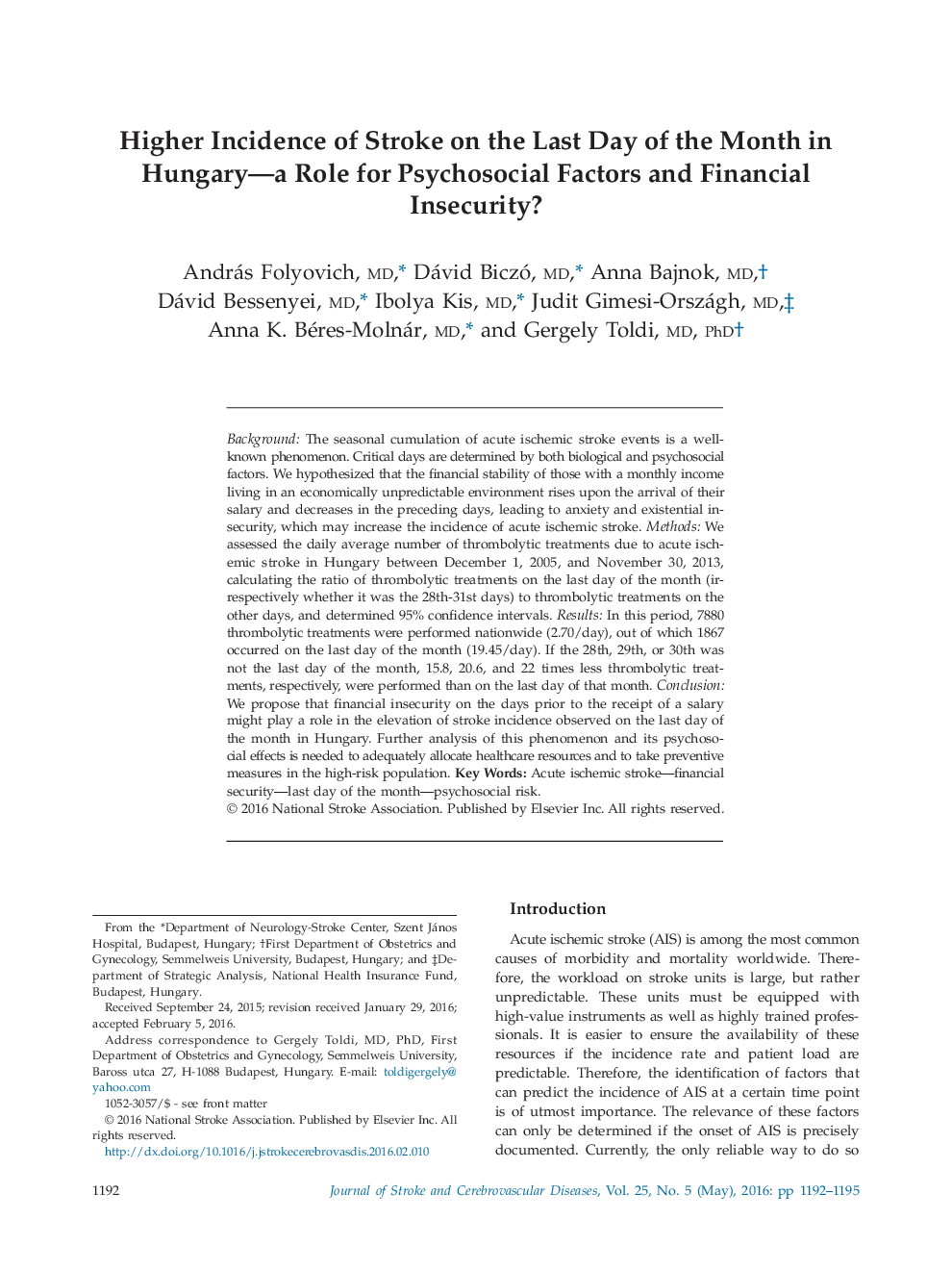| Article ID | Journal | Published Year | Pages | File Type |
|---|---|---|---|---|
| 5874331 | Journal of Stroke and Cerebrovascular Diseases | 2016 | 4 Pages |
BackgroundThe seasonal cumulation of acute ischemic stroke events is a well-known phenomenon. Critical days are determined by both biological and psychosocial factors. We hypothesized that the financial stability of those with a monthly income living in an economically unpredictable environment rises upon the arrival of their salary and decreases in the preceding days, leading to anxiety and existential insecurity, which may increase the incidence of acute ischemic stroke.MethodsWe assessed the daily average number of thrombolytic treatments due to acute ischemic stroke in Hungary between December 1, 2005, and November 30, 2013, calculating the ratio of thrombolytic treatments on the last day of the month (irrespectively whether it was the 28th-31st days) to thrombolytic treatments on the other days, and determined 95% confidence intervals.ResultsIn this period, 7880 thrombolytic treatments were performed nationwide (2.70/day), out of which 1867 occurred on the last day of the month (19.45/day). If the 28th, 29th, or 30th was not the last day of the month, 15.8, 20.6, and 22 times less thrombolytic treatments, respectively, were performed than on the last day of that month.ConclusionWe propose that financial insecurity on the days prior to the receipt of a salary might play a role in the elevation of stroke incidence observed on the last day of the month in Hungary. Further analysis of this phenomenon and its psychosocial effects is needed to adequately allocate healthcare resources and to take preventive measures in the high-risk population.
